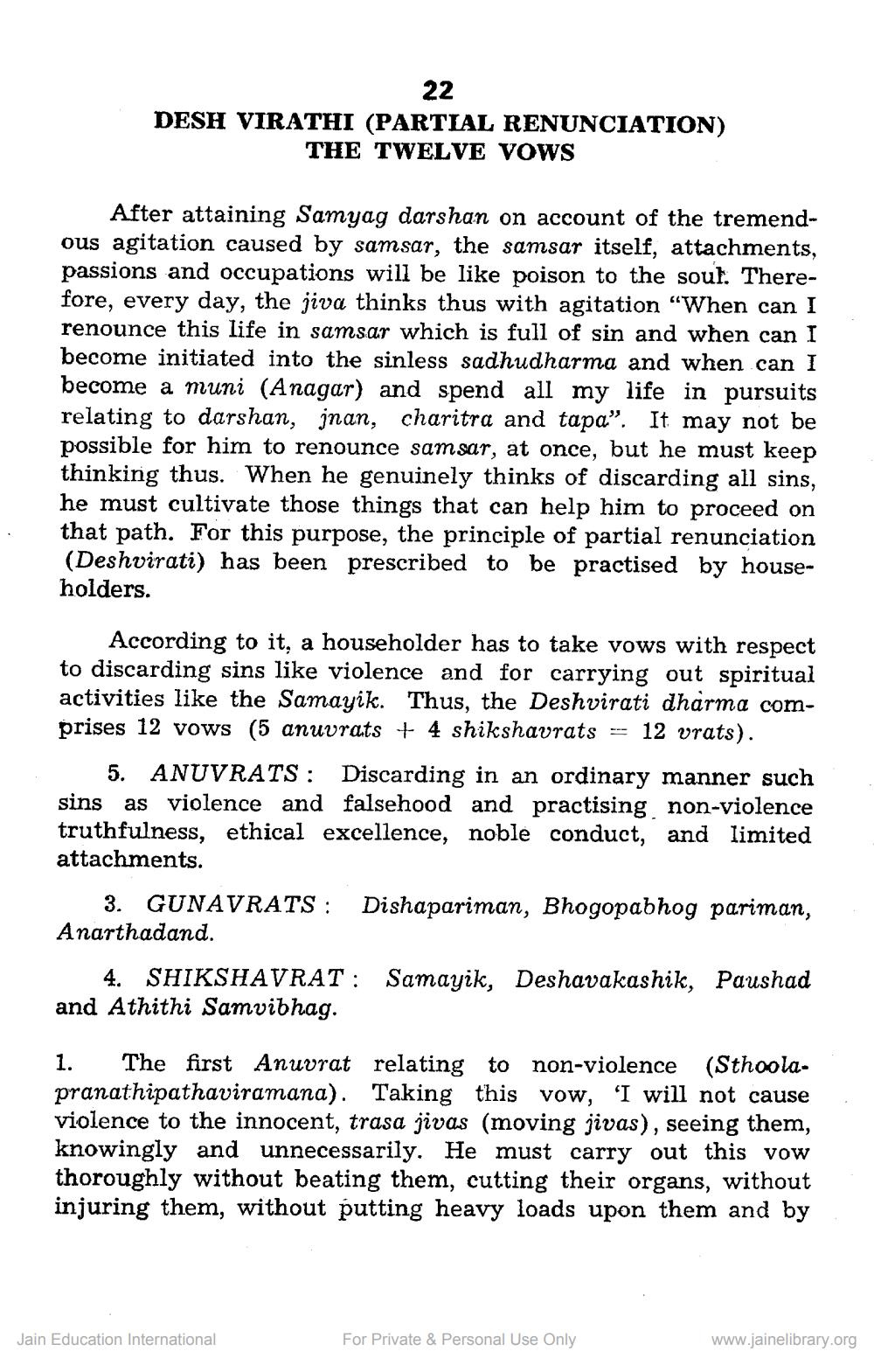________________
22 DESH VIRATHI (PARTIAL RENUNCIATION)
THE TWELVE VOWS
After attaining Samyag darshan on account of the tremendous agitation caused by samsar, the samsar itself, attachments, passions and occupations will be like poison to the sout. Therefore, every day, the jiva thinks thus with agitation “When can I renounce this life in samsar which is full of sin and when can I become initiated into the sinless sadhudharma and when can I become a muni (Anagar) and spend all my life in pursuits relating to darshan, jnan, charitra and tapa". It may not be possible for him to renounce samsar, at once, but he must keep thinking thus. When he genuinely thinks of discarding all sins, he must cultivate those things that can help him to proceed on that path. For this purpose, the principle of partial renunciation (Deshvirati) has been prescribed to be practised by householders.
According to it, a householder has to take vows with respect to discarding sins like violence and for carrying out spiritual activities like the Samayik. Thus, the Deshvirati dharma comprises 12 vows (5 anuvrats + 4 shikshavrats == 12 vrats).
5. ANUVRATS: Discarding in an ordinary manner such sins as violence and falsehood and practising, non-violence truthfulness, ethical excellence, noble conduct, and limited attachments.
3. GUNAVRATS: Dishapariman, Bhogopabhog pariman, Anarthadand.
4. SHIKSHAVRAT: Samayik, Deshavakashik, Paushad and Athithi Samvibhag.
1. The first Anuvrat relating to non-violence (Sthoolapranathipathaviramana). Taking this vow, 'I will not cause violence to the innocent, trasa jivas (moving jivas), seeing them, knowingly and unnecessarily. He must carry out this vow thoroughly without beating them, cutting their organs, without injuring them, without putting heavy loads upon them and by
Jain Education International
For Private & Personal Use Only
www.jainelibrary.org




